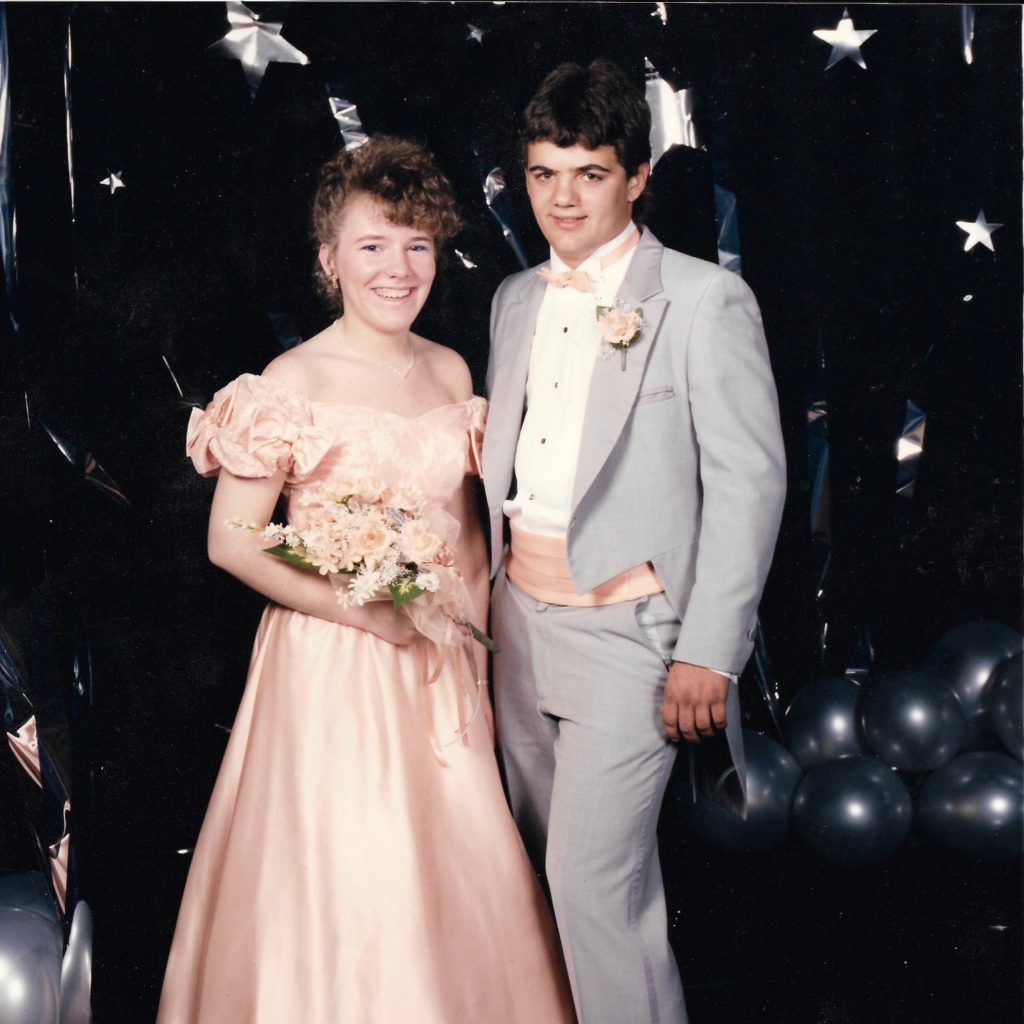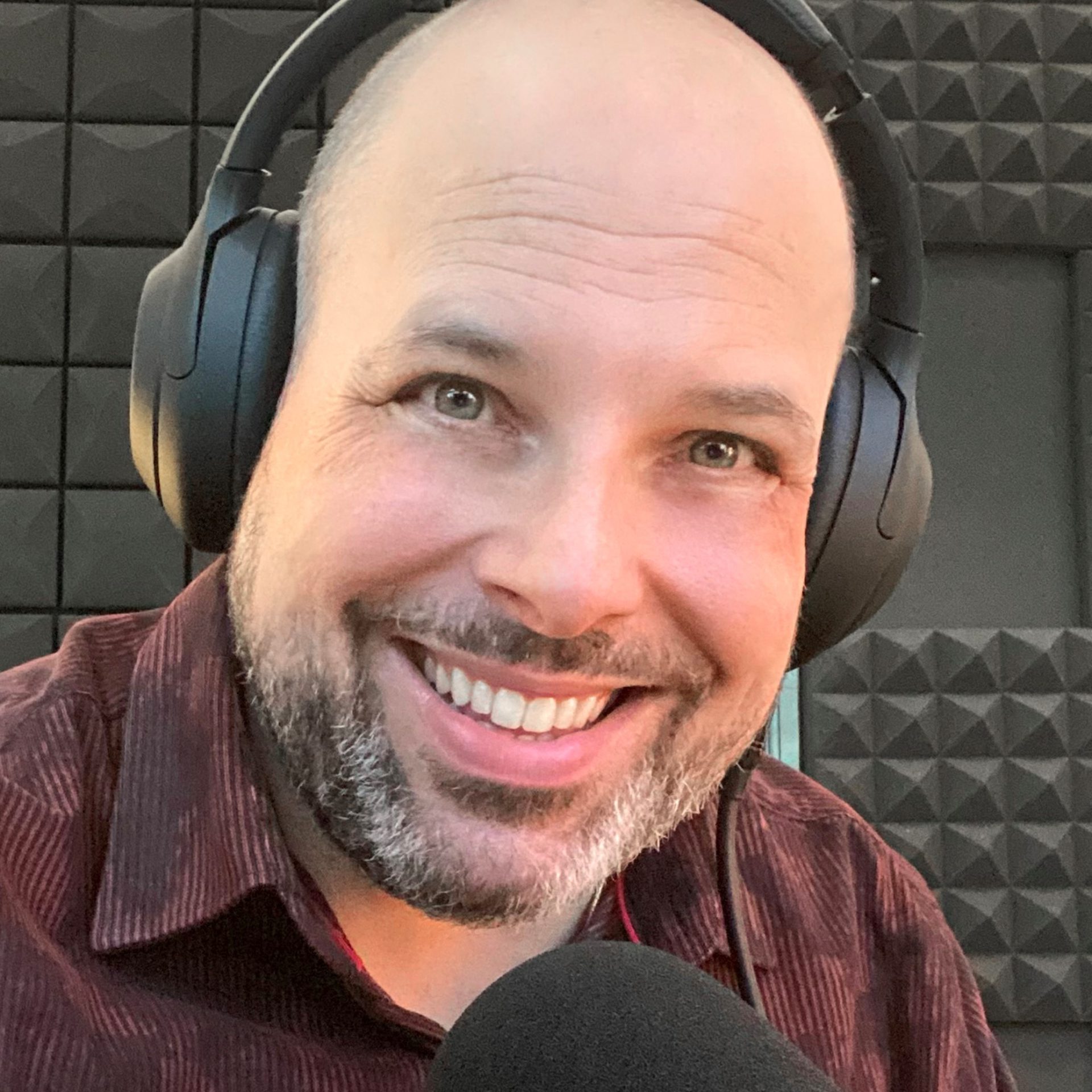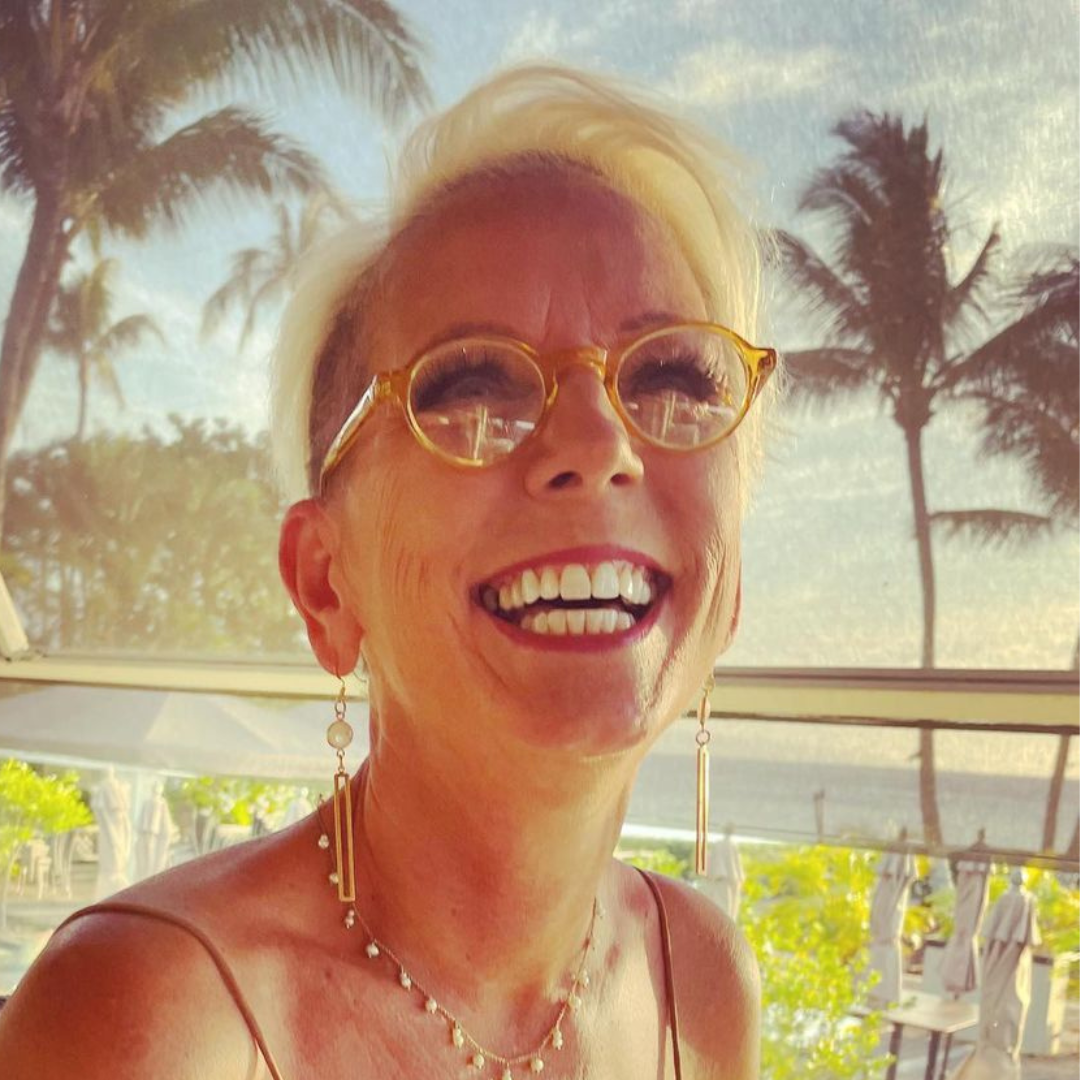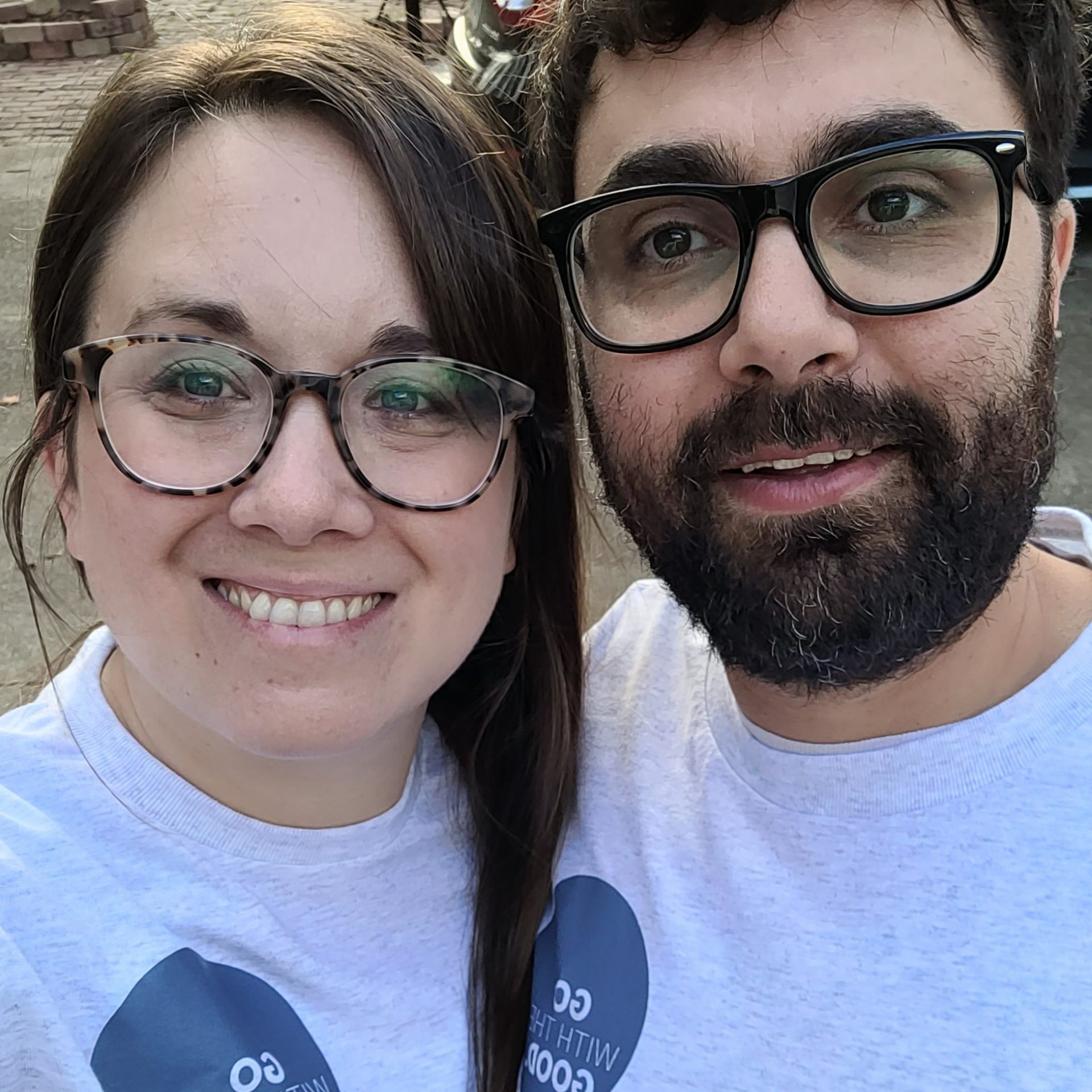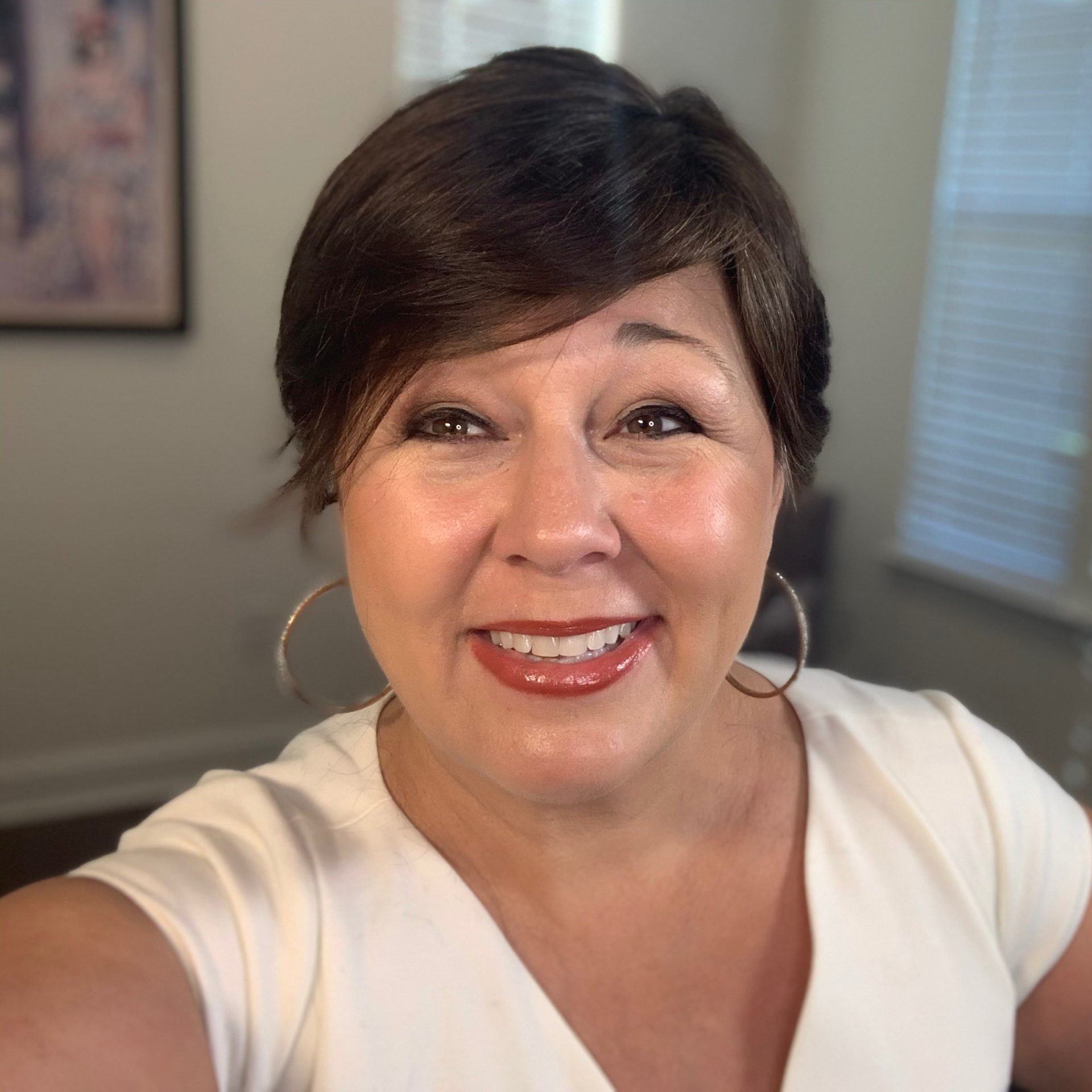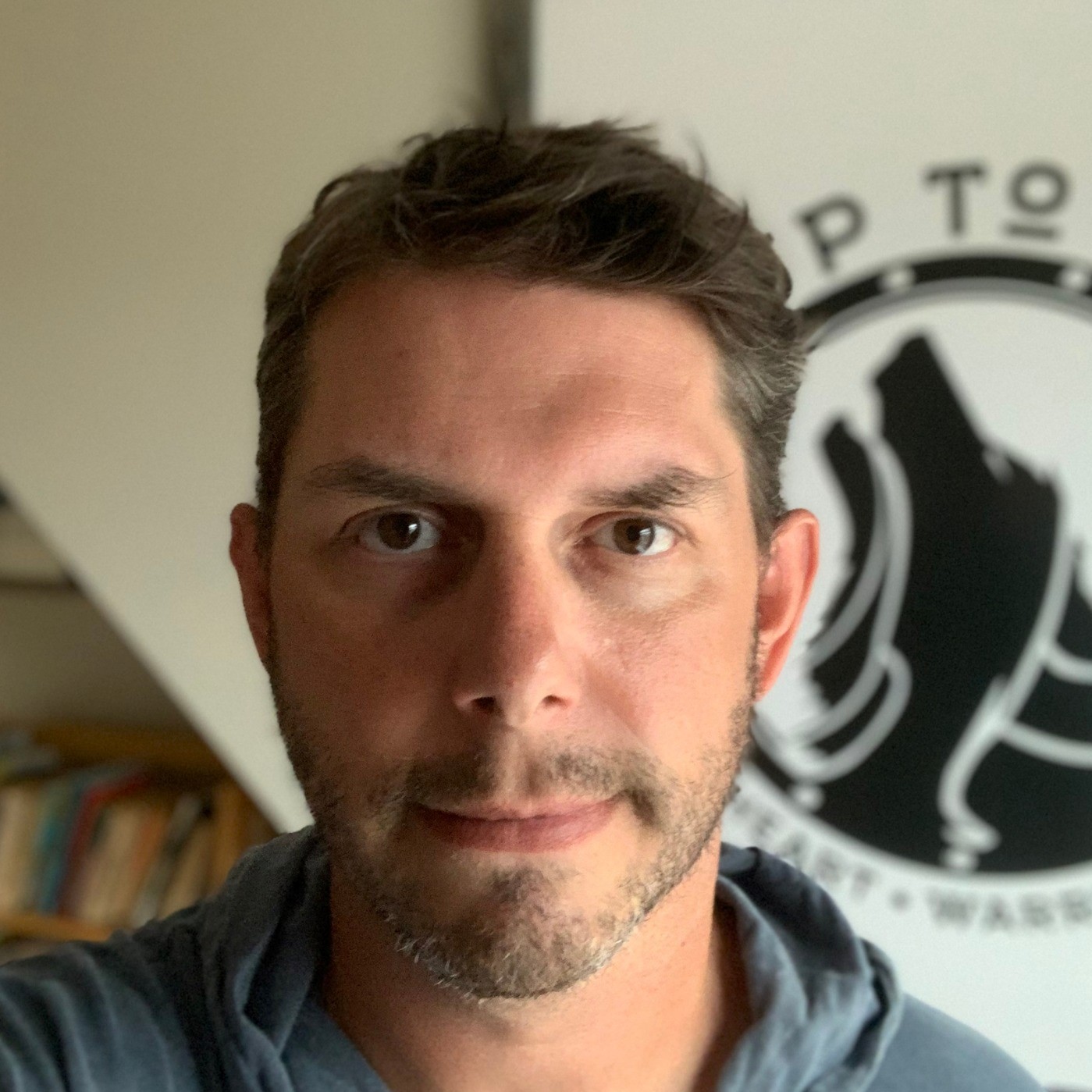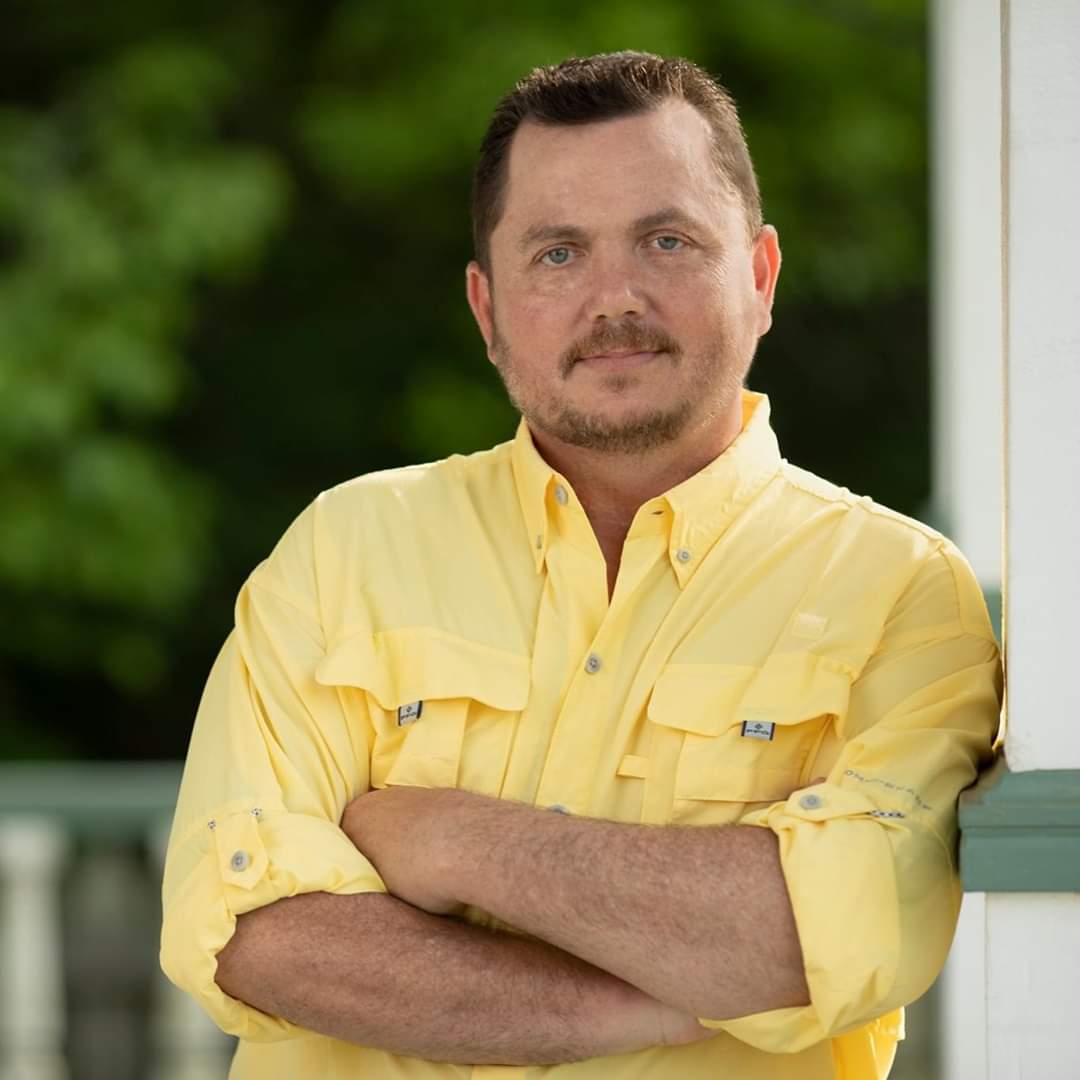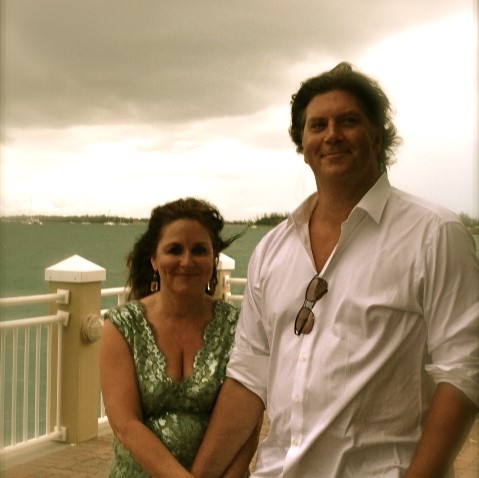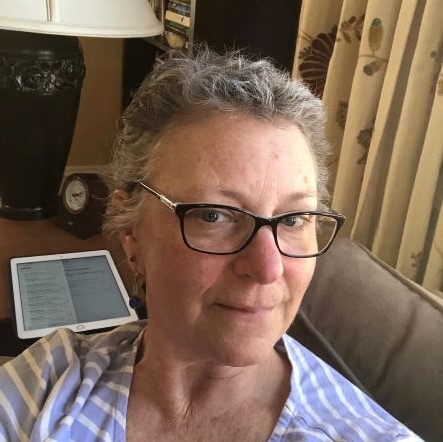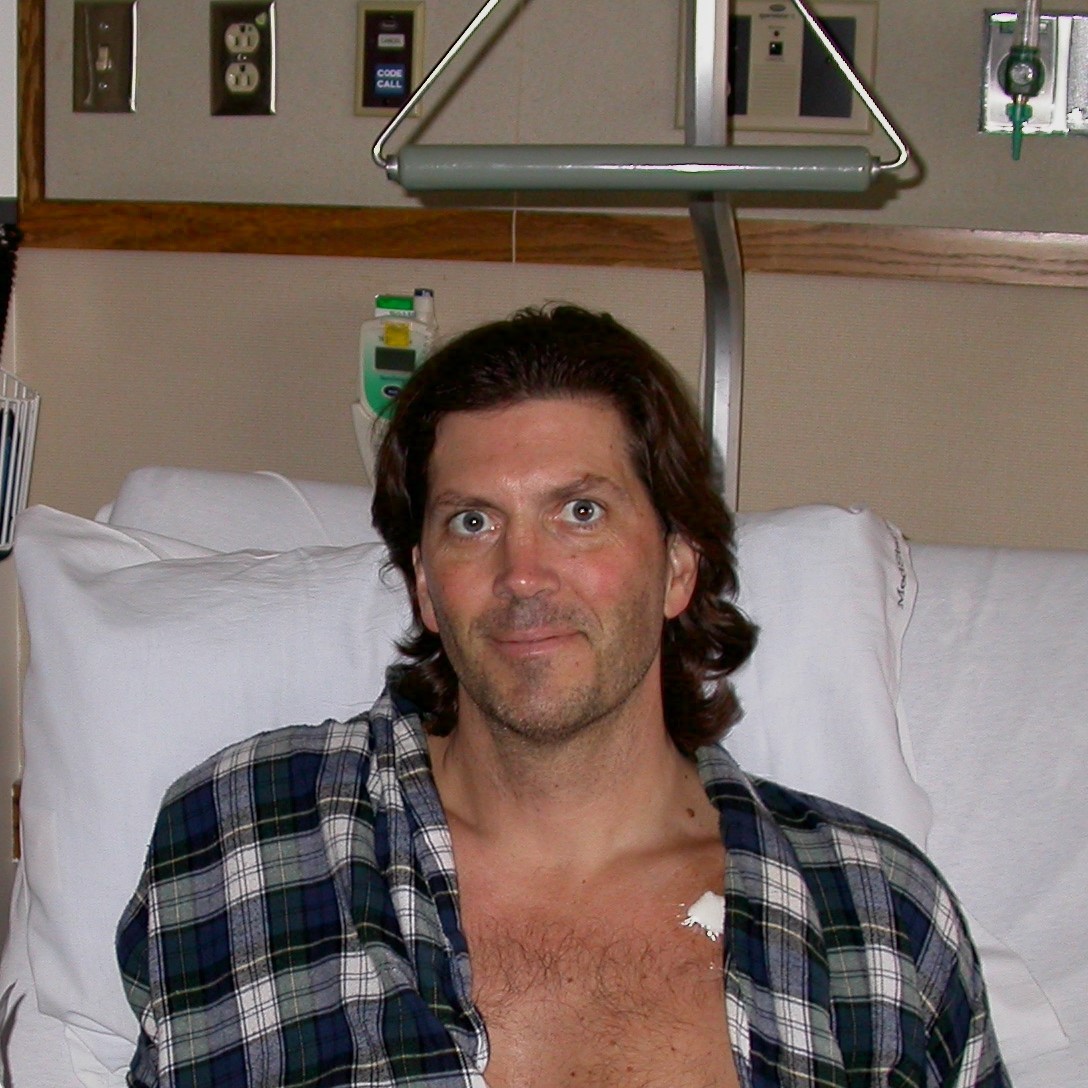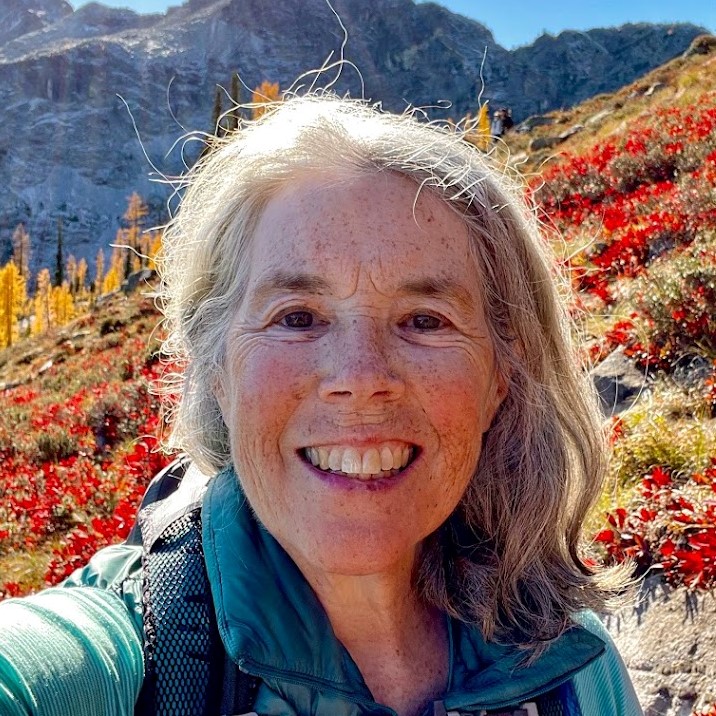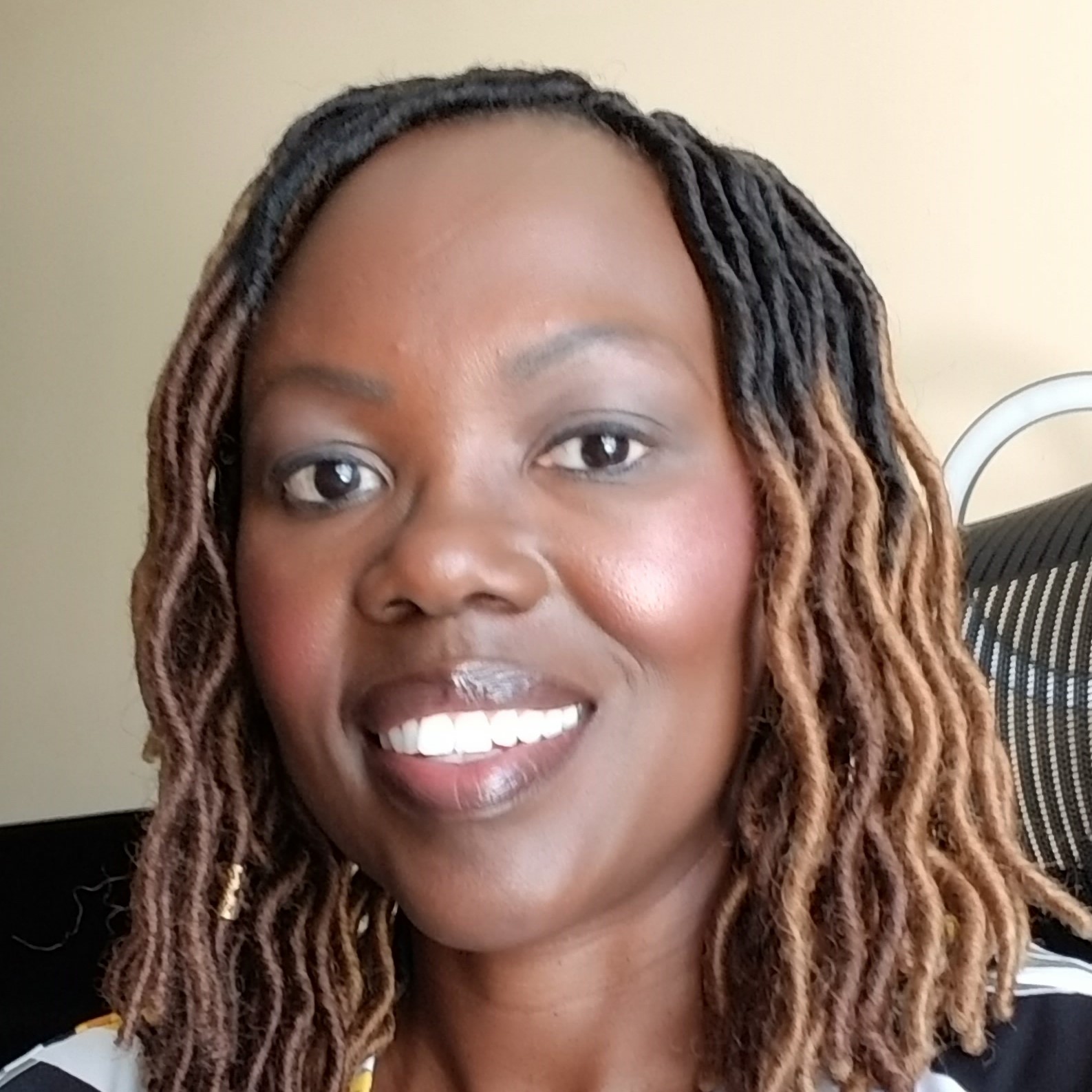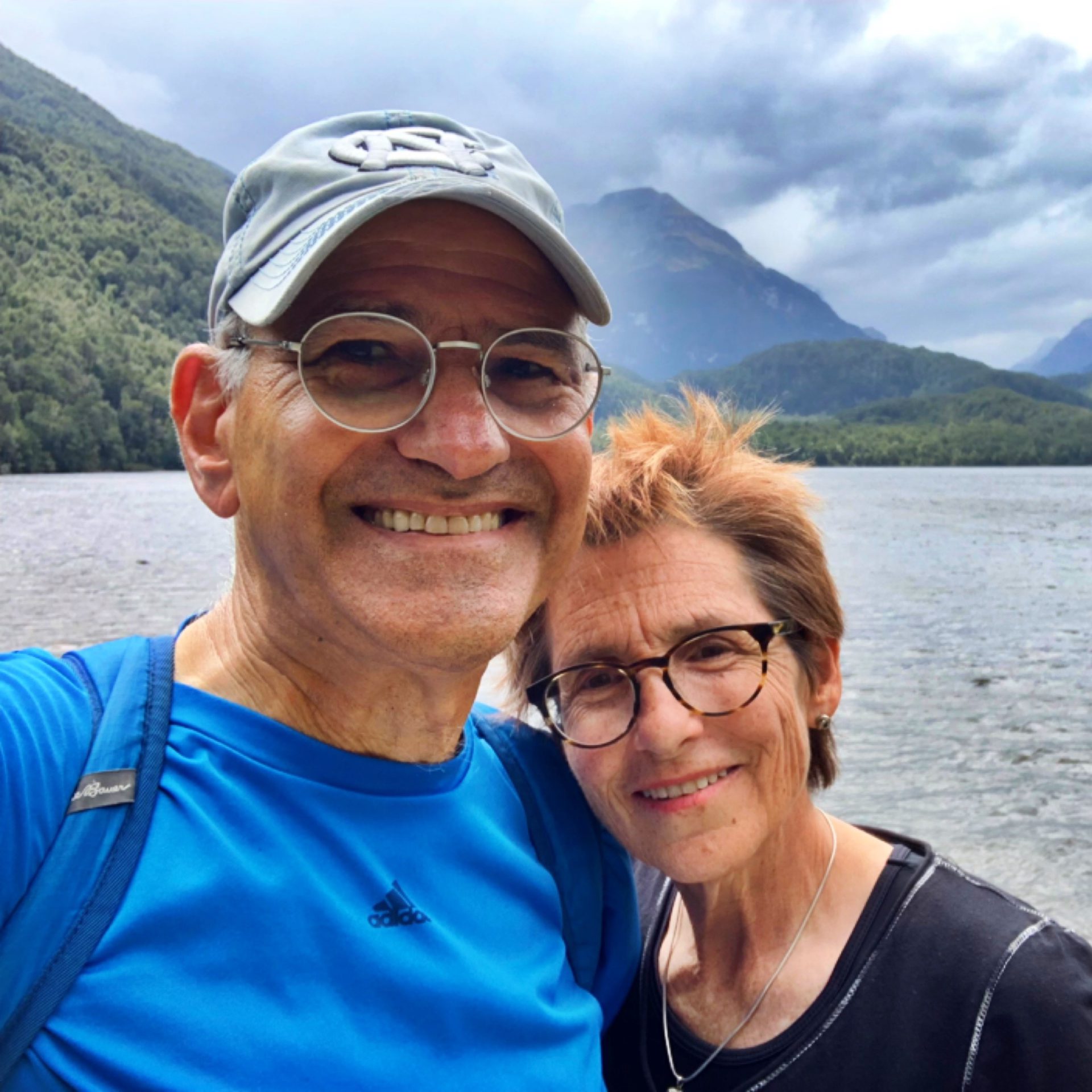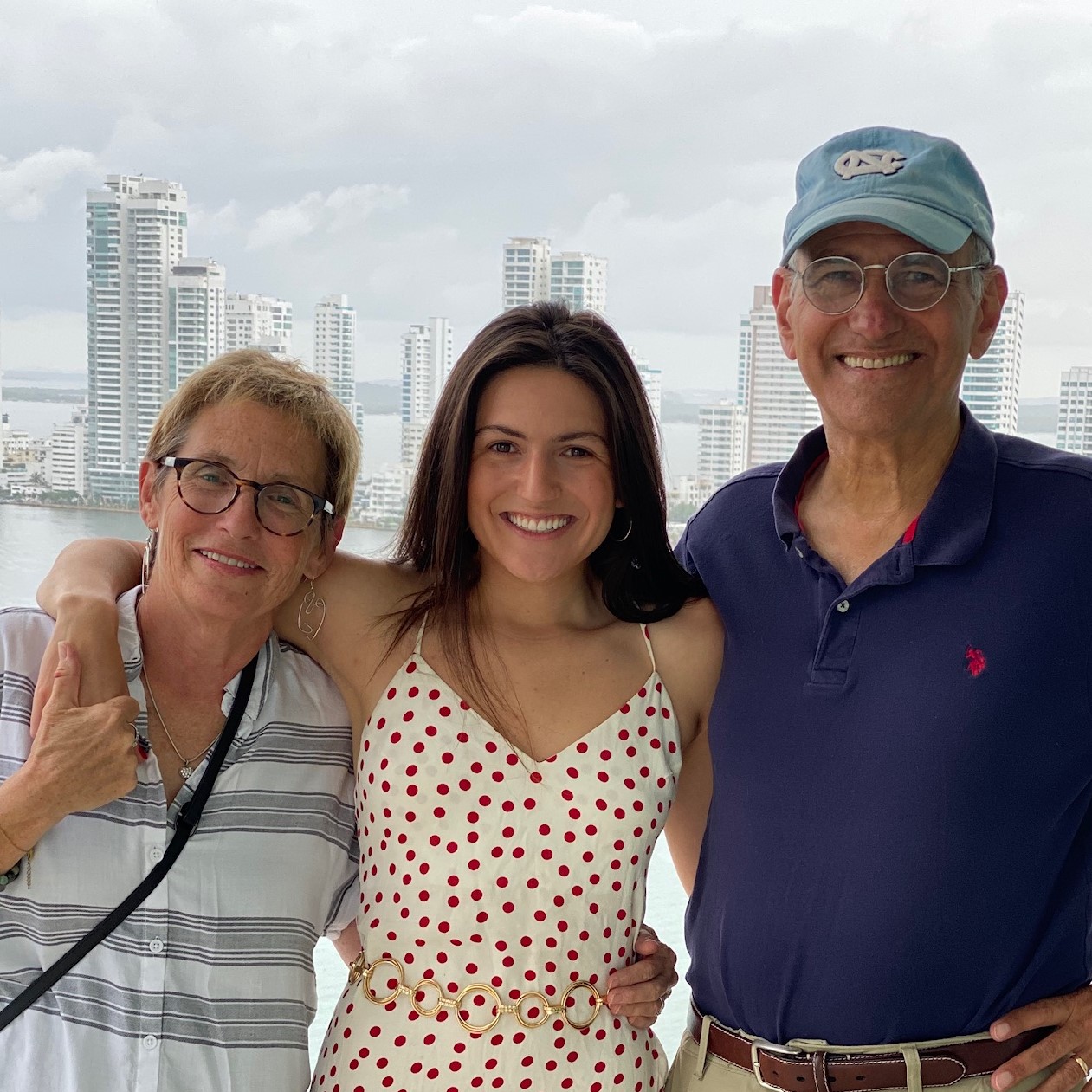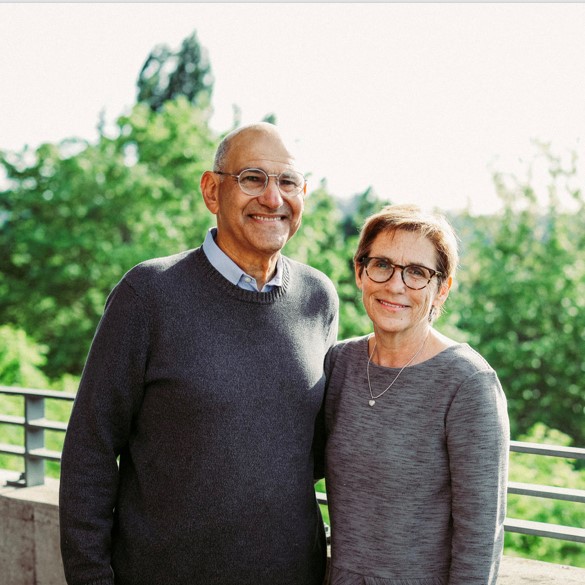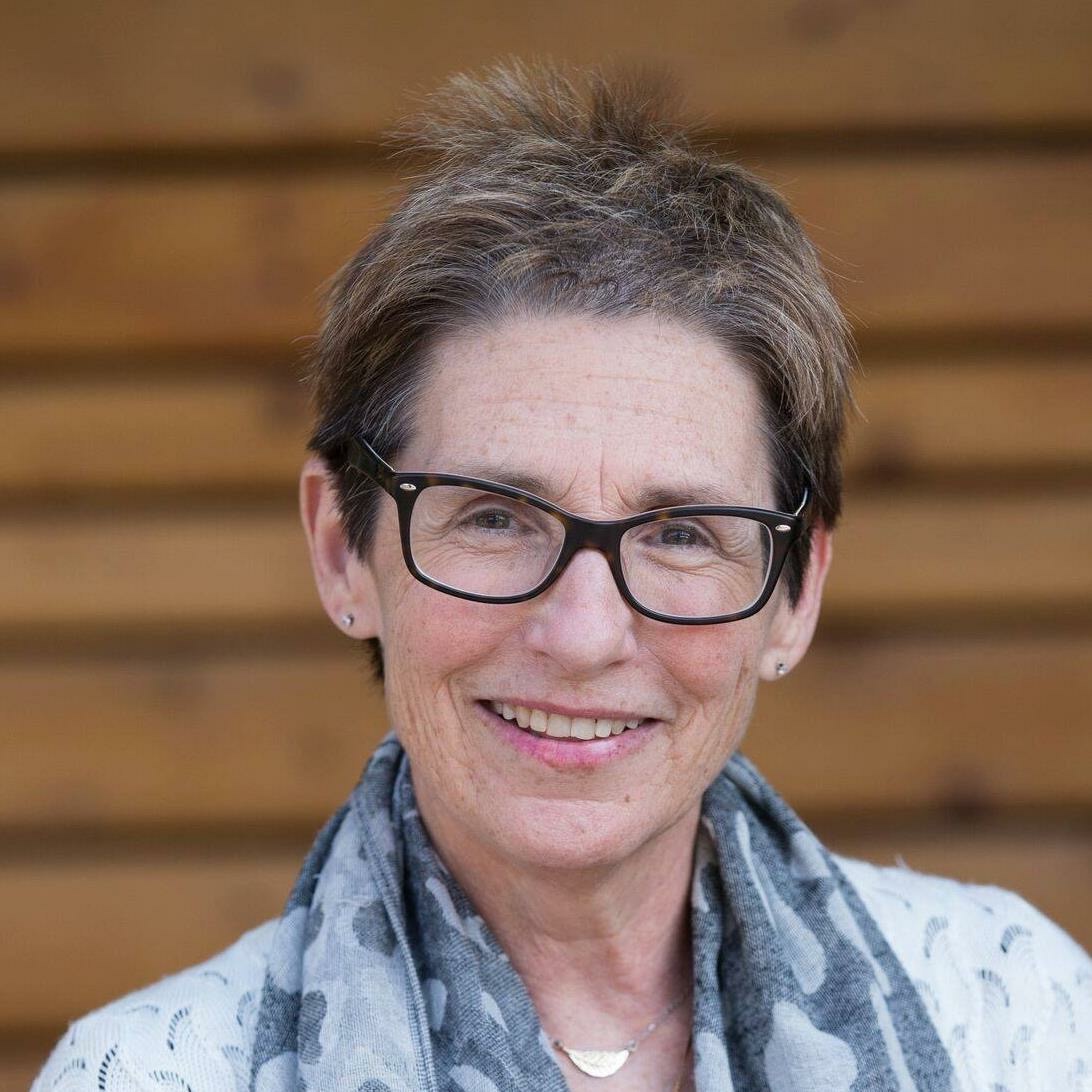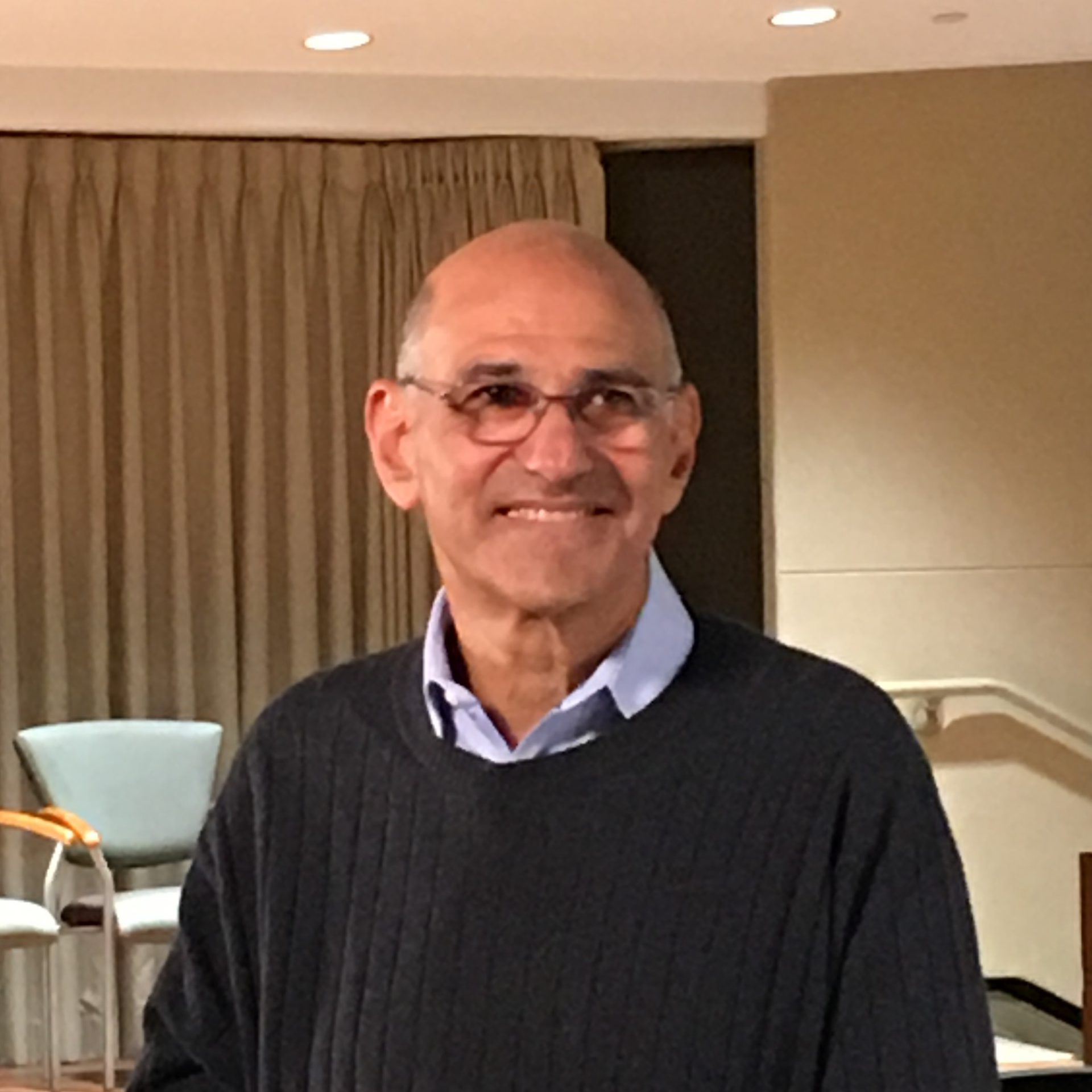Loving through Diagnosis | Cancer Friends
Featuring Christy and Vince Vaal
The Patient Story’s series “Cancer Friends” features Andrew and Esther Schorr. They co-founded PatientPower.info, a resource for other cancer patients and caregivers to help them through their diagnosis and treatment.
Join us every Sunday for a new “Cancer Friends” episode, airing on our video channel here!
This segment focuses on Christy and Vince Vaal. A month before their wedding, Christy was diagnosed with chronic lymphocytic leukemia (CLL). Christy and Vince discuss how they reconnected decades after being prom dates, the importance of support through cancer, and how love helped Christy through her cancer journey.
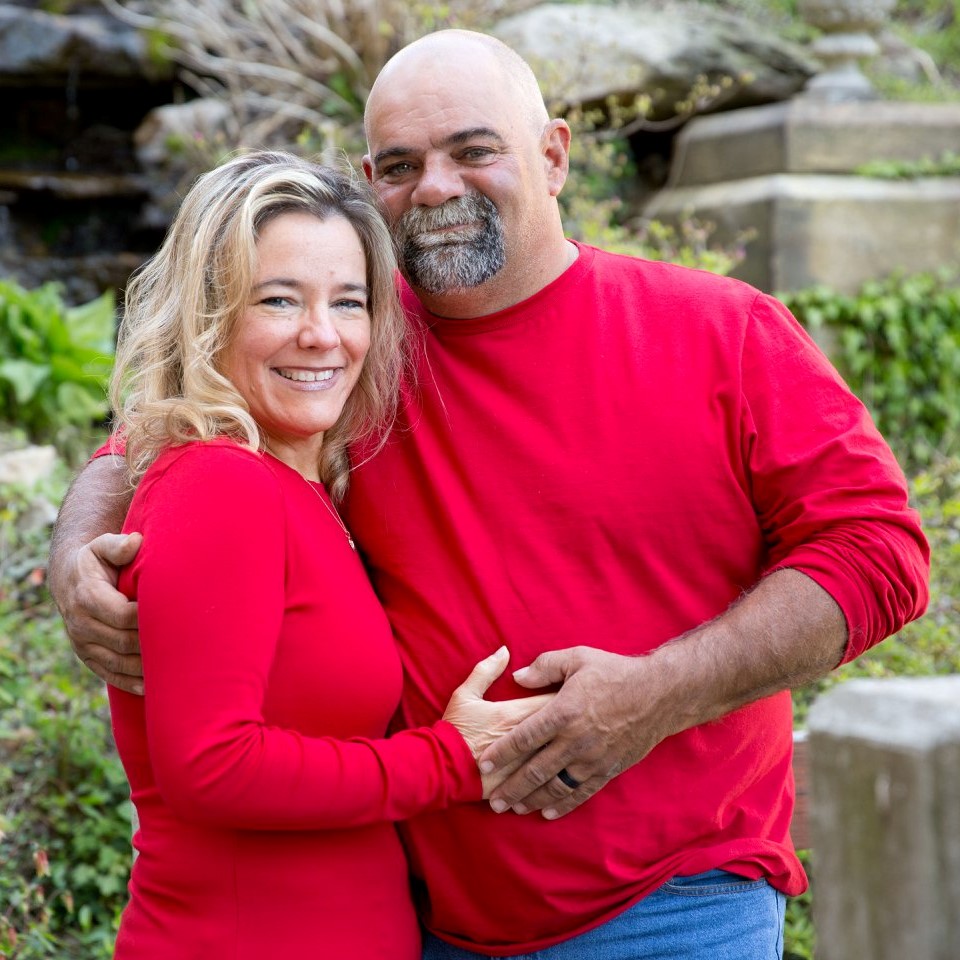
- Introduction
- Beginning of your love story
- Reconnecting after 28 years
- The first date
- The proposal
- 1st symptoms and diagnosis
- Overcoming the guilt of a diagnosis
- Ex-husband also being diagnosed with cancer
- Parenting with cancer
- Long stay in the emergency room
- How do you feel about the future?
- How COVID affects life
- Importance of seeking out support
- Sharing information with peers
- Helpful support for care partners
- Love being more powerful than cancer
- Going to all the appointments
- Being hopeful for the future of medical progress
This interview has been edited for clarity. This is not medical advice. Please consult with your healthcare provider for treatment decisions.
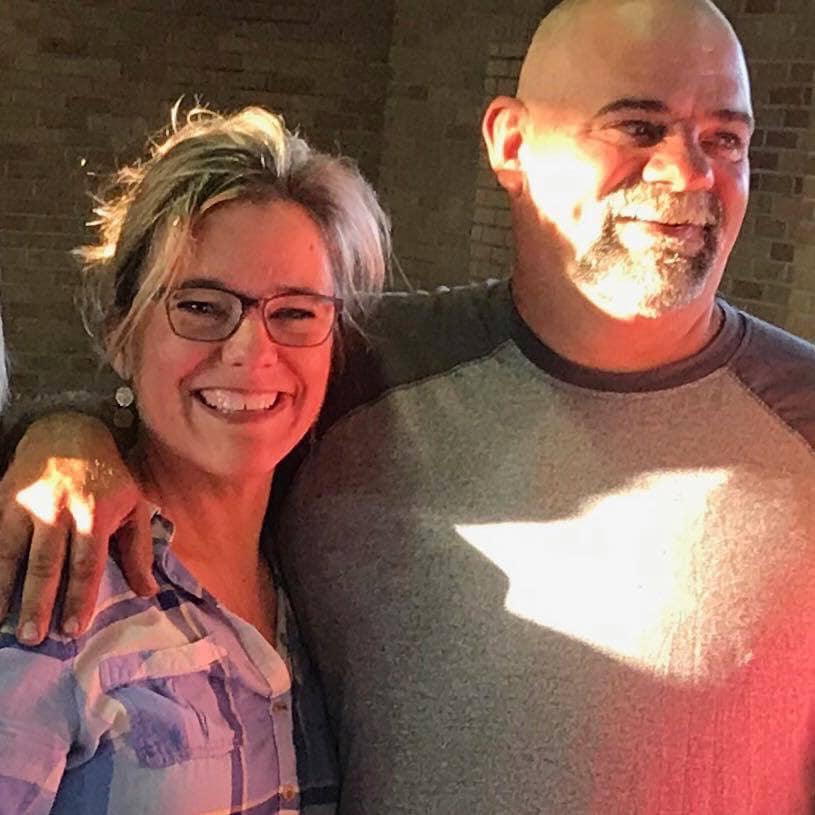
Everybody’s future is uncertain… She needed support. I loved her. I was hoping if the same thing happened to me, she would do the same thing I would.
Vince Vaal
Introduction
Andrew Schorr, The Patient Story: Hello and welcome to another edition of Cancer Friends with Andrew Schorr and Esther Schorr.
We’re joined by new friends from Jasper, Indiana, south of Indianapolis or north of Kentucky. Christy and Vince Vaal, thanks for joining us.
Vince: Thanks for having us.
Andrew, TPS: This is in part a love story, and it’s a love story that does really warm your heart. Christy, you’ve been living for a number of years with chronic lymphocytic leukemia like me, and you’re doing okay?
Christy: Yes, for the most part. Still in watch and wait, technically.
Beginning of your love story
Andrew, TPS: We’re going to talk about your illness as well, but we want to talk about your love story. Let’s go way back. This guy was your date at your Jasper High School senior prom. Most people would say you went to the senior prom, eventually kept in touch, and got married. But it wasn’t so simple, was it, Christy?
Christy: No, it wasn’t. That’s not how our story went.
Esther Schorr, The Patient Story: How did it go? What happened?
Christy: We went to my senior prom, and that summer we just hung out with friends. We had mutual friends, and we would just drive around and do things you do in small towns. Then that August, I left for college and went to Purdue, and then he moved to Bloomington.
Andrew, TPS: You went two different directions. Christy, you’re a clinical social worker. Vince, you have a family farm. Dairy farmer for many years. You’re in the construction business with concrete and trucks and all that kind of stuff.
Each of you got married and eventually divorced. Each of you had children — two for Christy, one for Vince.
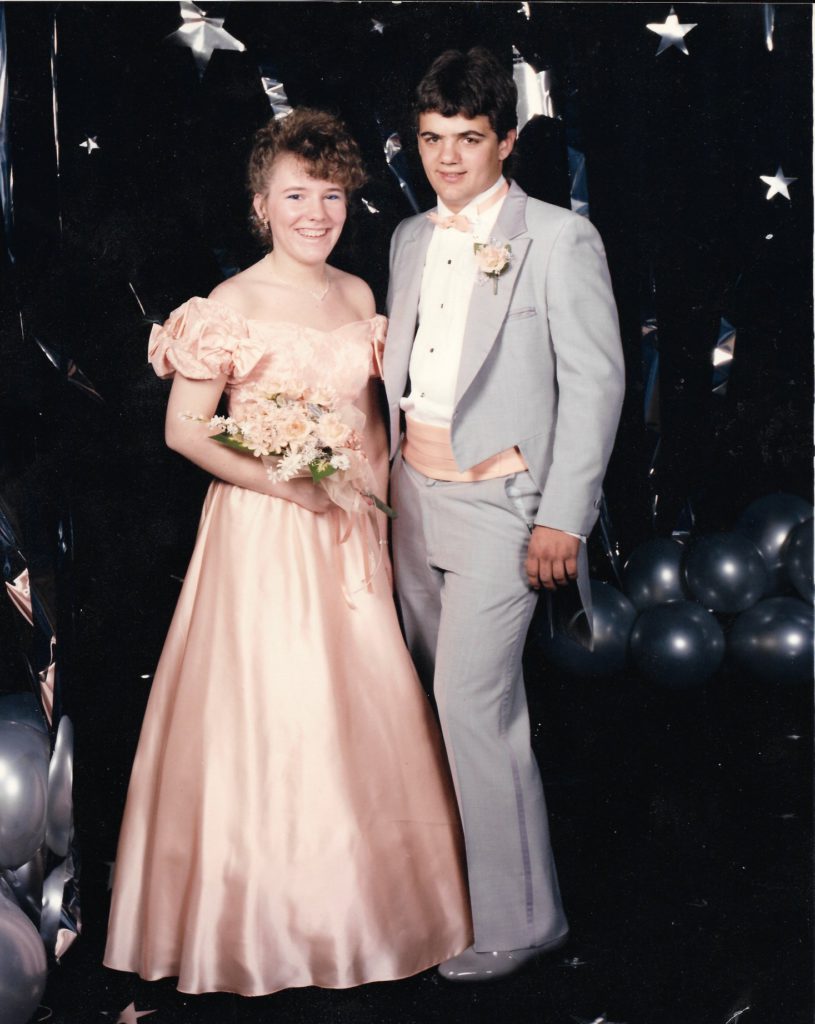
Reconnecting after 28 years
Andrew, TPS: Let’s flash-forward 28 years later. You’re both divorced by then. Christy, what happened?
Christy: In 2016, it was nighttime. My kids had gone to bed. I was just thumbing through Facebook, scrolling, and he came up as a suggested friend. I couldn’t believe it because I hadn’t seen him in 28 years.
I thought, “Oh, it’d be fun to just say hi or connect on Facebook.” I clicked Add Friend, and he accepted pretty quickly. I think it was the same night. It was pretty quickly.
Vince: That was probably the first month I had Facebook. I’m not into computers or iPhones.
Andrew, TPS: You get this message, Vince, from your prom date. What was your reaction?
Vince: I really couldn’t believe it. I didn’t know where she was. I hadn’t talked to her in 28 years. I drove by her home place the past 20 years. I never even thought she would move back to Jasper after moving away, but here she was at Jasper.
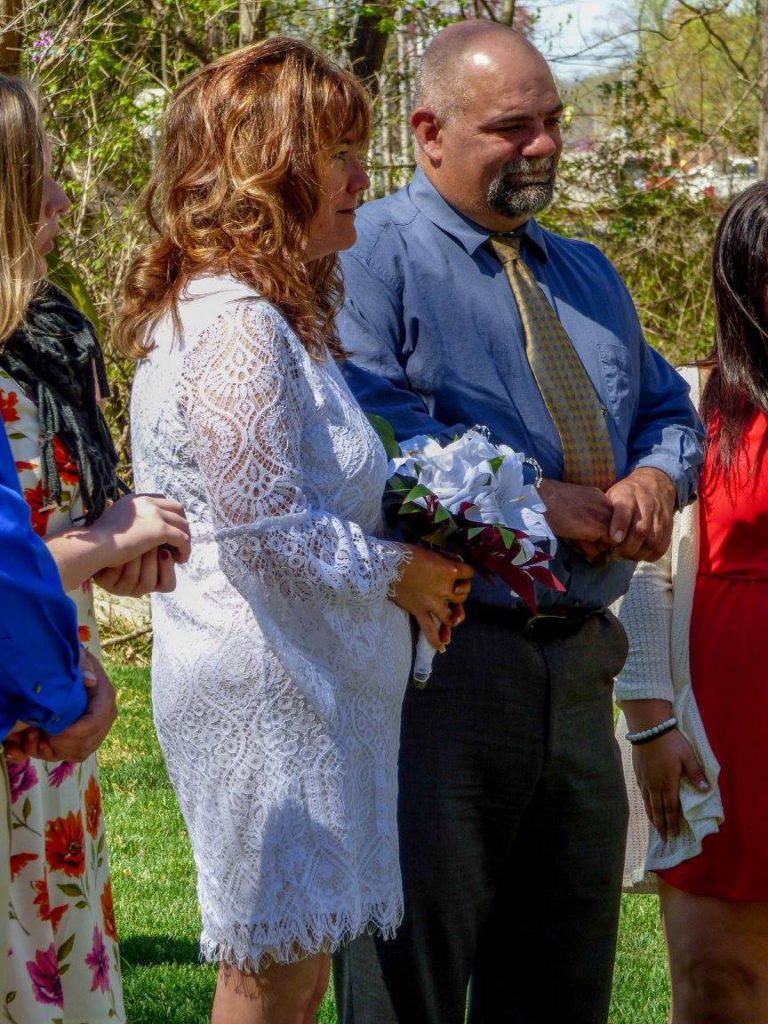
Andrew, TPS: Your work took you to Jasper. What happened?
Vince: I was telling the guys I work with about it. They said, “Well, hell, you’re over here. You might as well give her a call. What’s the worst that can happen?”
I said, “Nothing bad’s going to happen.” I texted her and said, “Do you want to meet? Do you want to go eat somewhere or maybe just get a drink?”
The first date
Vince: We decided to meet at the ice cream place on the square. I pulled up. I haven’t seen her in 28 years.
She pulls up and gets out of the car, and when she smiled, she has a gap between her teeth. I always remembered that gap. I love that gap. She goes, “Well, I’m not really hungry, and I’m not really thirsty.”
I said, “Well, you want to go to the river walk and walk and talk?” We walked to a bridge. We sat in the bridge and talked for about 3 [or] 4 hours. Then [we] went our separate ways, and two days later we went out.
The proposal
Andrew, TPS: That is so cute. We should mention now, Christy, you were already living with a diagnosis of a chronic illness: rheumatoid arthritis.
Christy: Correct, yes.
Andrew, TPS: You were getting medicine for that. Now you’re dating. [Vince], you at some point then say, “I’m going to propose.” That was a big deal.
Esther, TPS: How did that happen?
Vince: I went down and bought a ring, and I had the ring for a while. I kept waiting, and she kept going, “I need to get my nails done. I need to get my nails done.”
Finally, one day we were standing outside. I said, “You need to get your nails done. Then it hit her, and she was like, “Okay, I’ll go get my nails done.” I proposed to her the next day.
Andrew, TPS: You didn’t do it on the bridge, did you?
Vince: No. That’s where we got married.
1st symptoms and diagnosis
Andrew, TPS: Something intervened. Christy, after you were already together with Vince and were making plans for a wedding, you’d been losing weight rapidly. Your voice was kind of getting shaky. You’re having swallowing issues. You go to the doctor, you have blood tests, and you get a phone call. You’re home alone. What did they say?
Christy: I started having symptoms in December. That weight loss, the swallowing issues, the voice. My voice was almost completely gone. It took 3 months for them to actually run blood work. I had all kinds of other tests done, but the blood work wasn’t run until March. A nurse called me when I was home alone and told me I have leukemia.
Esther, TPS: This was just before you two were going to get married, right?
Vince: The wedding was planned for April.
Andrew, TPS: You were crying, totally devastated. Vince isn’t there. You’re distraught. Vince, on your side, here’s the woman who you’re supposed to marry in a month. She’s diagnosed with cancer with an uncertain future. Not everybody would go through with it. Tell me about your line of thinking.
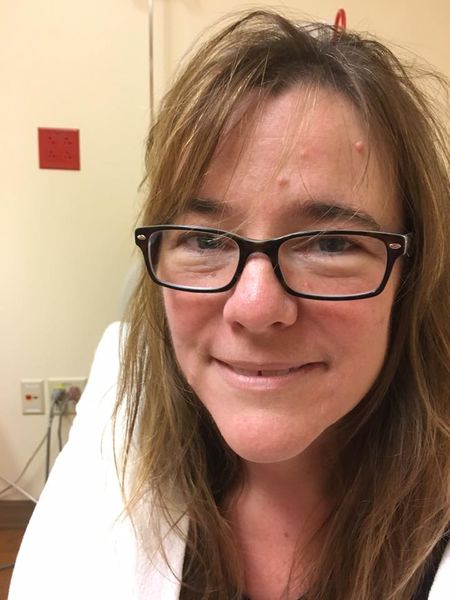
Vince: Everybody’s future is uncertain. Nobody sees it that way. We were committed. We were dating. We were going to get married. We had it planned. I always tell people I’m too fat to run, so I just stay there and take it. She needed support. I loved her. I was hoping if the same thing happened to me, she would do the same thing I would.
Overcoming the guilt of a diagnosis
Andrew, TPS: Christy, did you have any doubt about whether he would want to continue?
Christy: No, I didn’t have any doubt about him continuing. I felt bad. I felt guilty that here we were, looking forward to getting married, and we had finally found each other. I wanted to be a good wife to him, and I wanted us to have a fun, adventurous life and do things. Just what anybody expects. It didn’t go that way, and I felt guilt.
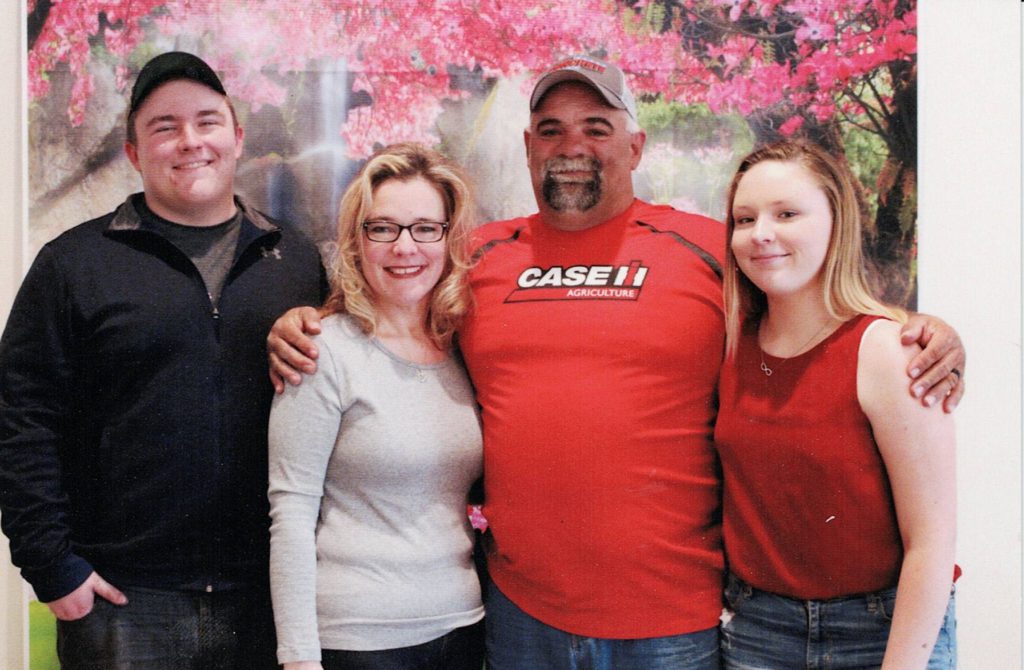
Esther, TPS: How did you get past that? That’s an understandable feeling. Individuals always have this vision of what it’s going to look like and what we’re going to do. It sounds like Vince had already made peace that, okay, this is a curve ball, and it’s going to go the way it’s going to go because you love each other. You’re still married, and you have a life together. How did you get past how you were feeling?
Christy: [It was him]. He was there every single day. He never, ever made me feel like he went through with the marriage because he felt a sense of obligation or anything like that. He acted the day after I was diagnosed the exact same way he acted towards me every day before that.
He was there for every appointment. I was very sick at that time, and I had lots of procedures that were scary and uncomfortable. He was there every single [time]. [He] took off work. Never batted an eye. Then I also had the support of my kids. That’s how I got through.
Ex-husband also being diagnosed with cancer
Andrew, TPS: Christy’s first husband, the father of her two children, became sick with cancer as well, advanced colon cancer, after [you] were married. You still were, of course, in touch with [him]. I understand you also knew him, Vince.
You wanted to support him, Christy. Vince, you wanted to support Christy as she supported her ex-husband, the father of her children.
Vince: And her kids. I was supporting her kids, too. He was a nice guy. I never had any trouble with him. We talked. He would come over, we’d talk, and he’d just run into bad luck. He had no family around here that I knew of, except his two kids.
Christy: He actually was at our wedding.
Parenting with cancer
Esther, TPS: How old were [your kids] when all this was happening, and what was their role in supporting either one or both of you?
Christy: My son was 16 when I was diagnosed. My daughter was about to turn 14. His daughter is the same age as my son, so she was about to turn 16 at that time. They all handled it pretty gracefully.
We were very honest with them because they had already been through something very similar to this with their father. They watched him get diagnosed, and he had multiple major surgeries that we would travel to Indianapolis for. They were very well versed in sleeping in waiting rooms and just being through all of those types of things.
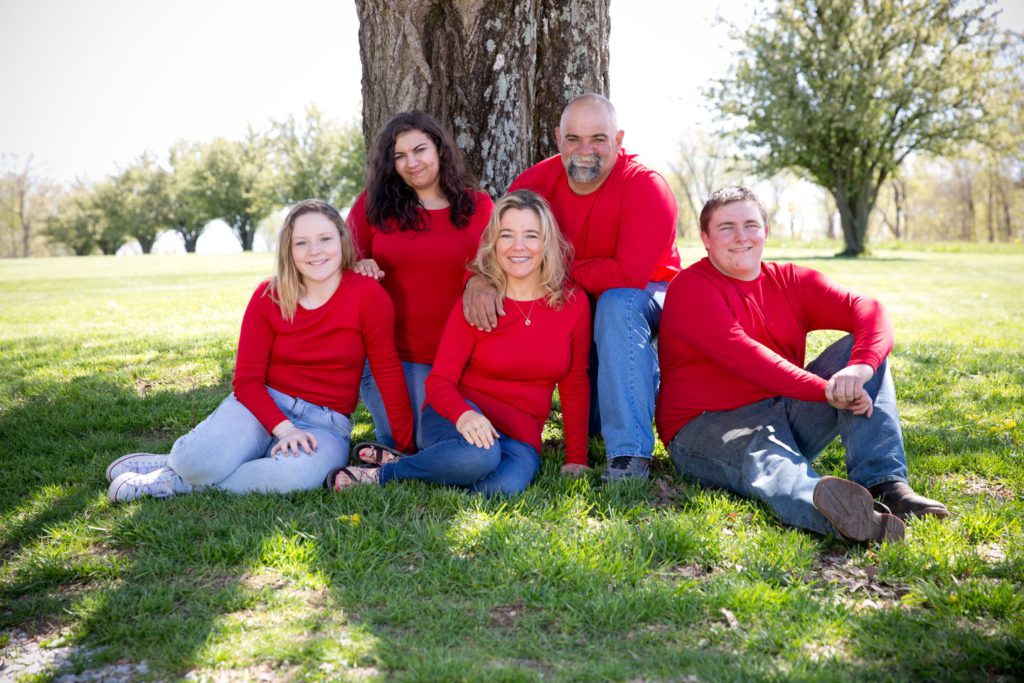
I knew I couldn’t hide it from them even if I wanted to. I was losing about 7 pounds a week. It was very clear, very obvious. I couldn’t talk. I was very clearly sick, and there was no way to hide that from them. They’re strong. Kids are so much more resilient than I think we give them credit for.
»MORE: Parents describe how they handled cancer with their kids
Long stay in the emergency room
Vince: There was a stint that she had to stay in the hospital, and Greg would come and visit because he was feeling better.
She called me at work and goes, “I’m going to the ER.” I said, “I’ll be home in an hour,” and I hung up the phone. We shut everything down. I called my boss (the owner of the company), and I said, “My wife’s going into the emergency room. I’ll be back when she gets out of the hospital.”
There were nine days she was in there. Greg would come and see her, come talk to me while she was in there, and bring the kids sometimes. He supported her, she supported him, and I’m just here. It’s just a fact of life for me. This stuff’s going to happen to everyone.
Andrew, TPS: You say you’re just here, but Vince, you impressed me as sort of [being] a rock in all this.
Vince: I don’t get excited about too much. This is just a fact of life. It happens. I grew up on the farm. There’s life and death. That’s pretty much it.
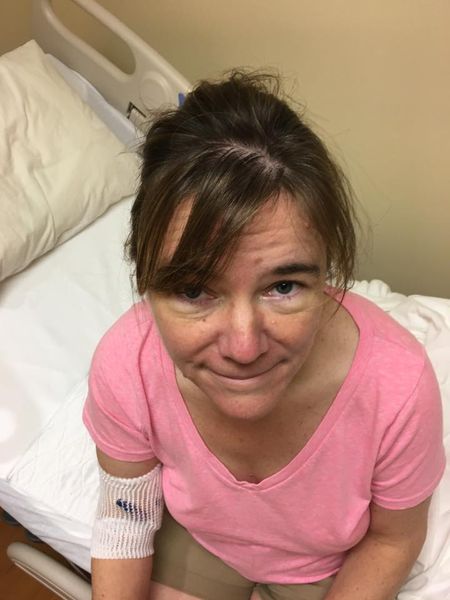
How do you feel about the future?
Andrew, TPS: Christy, your CLL seems to be pretty well controlled now, right? Your RA is pretty well controlled, right?
Christy: Yeah.
Andrew, TPS: How do you see the future?
Christy: I think I would have a more clear answer if it wasn’t for COVID. Being immunosuppressed, I’m isolated. We used to go out to eat every Saturday. We would just do the normal couple of things and things with our kids. It’s really hard to predict what the future looks like as far as that type of thing, because we’re still isolated. He stays relatively isolated because of me, too. He goes to work and things. I find it more difficult these days to predict what the future is.
Andrew, TPS: But you’re hopeful?
Christy: Hopeful, yes, and you adapt. We adapt. We’ve adapted as much as we can, and we try to do as many things as we can safely.
Esther, TPS: Vince, what about you?
Vince: The future is what it is. We’re going to be together through it all. Now we’re trying to get a house built out in the country. She’s isolated, so she might as well be able to go outside and see the country. [We] just live and do whatever we can. Once the COVID clears up, maybe we’ll go on trips. Have a good time. We missed 28 years of the good times, so we might as well have it now.
How COVID affects life
Esther, TPS: With COVID, I think it depends on where you’re living in the country at the moment. I’m interested that you’ve made the choice to remain very isolated. Does it feel as though that’s what’s needed given what’s going on in your area?
Vince: She goes to places more than I do. It’s for the simple fact I’d rather just go to work, go to the farm, and come home.
Christy: This area of the country is a heavily, heavily Catholic population. A lot of the generations before us had a lot of children. We have a big family between the both of us. He has five siblings.
We have family gatherings and that’s been difficult to navigate, to try to stay connected to the family but not put myself at risk. Yes, it’s been difficult.
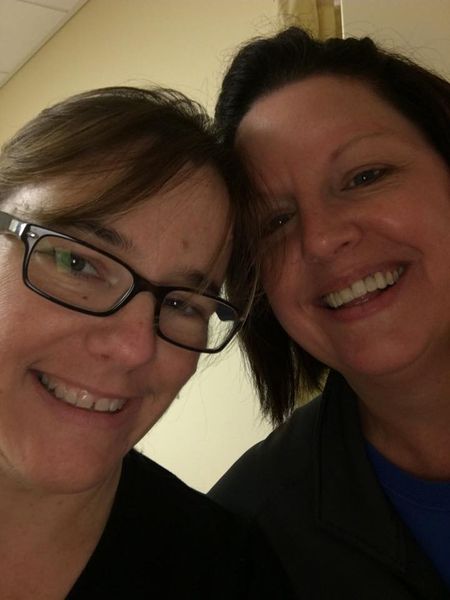
Importance of seeking out support
Andrew, TPS: Christy, there you are, a social worker, but I know you’ve told me previously it’s meant a lot to you to connect with other patients, particularly online in a virtual support group. I’m sure a lot of these people will hear your love story. It’ll make them feel great.
Why do you think it’s so important for people to seek out support? First, of course, from a close relationship like you have with Vince, but also even people who may be far away?
Christy: First of all, I always say to my patients, “Whatever your illness is, whatever your issue is, try to find a support group that is comprised of people that are going through exactly what you’re going through, that have your diagnosis, or whatever it is.”
There’s just nothing quite like being able to talk to people who know exactly what you’re going through and are going through it themselves. It’s been very important to me to have family support. I was very fortunate to have that.
The group of ladies that I’m in the virtual support group with, they have just helped me feel [normal]. It’s hard to feel normal when you have CLL, especially during COVID. They kind of normalize it in a way for me and make me feel not so different.
Sharing information with peers
Christy: We share information. We all go to various specialists and things, and we’re all at various stages of our disease. There’s a lot of information I’ve gained from talking to them, because some of them are farther along than I am. It gives me an idea of what to expect possibly.
We support each other. We know exactly what it feels like when you get bad news [or] when you’ve gone to your doctor and your labs aren’t great. It’s just so helpful and so important to have that. It’s validation. Sometimes you can feel when you’re chronically ill like you’re a burden or like you’re always kind of preoccupied with your illness. When you talk to other people who are going through it, you realize they feel the same way, and it’s validating.
Helpful support for care partners
Esther, TPS: Vince, I’m in sort of the same position as you are, being the person along for the ride for the long term. From the standpoint of support that you’ve needed or you’ve gotten, [is there] anything you would say has been helpful to you or that you would say other care partners would want to have?
Vince: My biggest relief is when I go to the farm and work. It’s just like the world’s lifted off my shoulders. Nobody bothers me. I can do what I want. I get to spend time with my mom and dad. They’re getting up in age. A lot of kids don’t get that. For the past 25 years, I’ve got to see him every day, except the past 2 years. I don’t make it down there every day like I used to, but I try to make it about 3 or 4 times a week.
Andrew, TPS: Good for you.
Vince: I just love it out there in the country. Nobody bothers you. No neighbors. My mom and dad got a little dog. I got friends.
Love being more powerful than cancer
Vince: When this all first started, my friends were like, “You could have run.” I said, “Yeah, but you know me. I like to take the difficult path. I’ve been doing it my whole life. You can’t run.” That’s just kind of being a coward to me.

I loved her. It’s been different. I’ve learned a lot. My great uncles and stuff, they got cancer, and we took care of them. But they were 78 years old. It’s different when they’re young like that, and it’s different when you’re side by side with them. My only prom I ever went to, this is my date.
Andrew, TPS: Christy, would you say that from your experience, love can have a power over cancer?
Christy: Yes. It obviously can’t cure it, but it sure can make it a lot easier to live with and to make it through it. It gives you the strength, I think, that you need to make it day to day and to just not give up. That support is everything. Just knowing that no matter what happens, he’s right by me. That really helped me get through it.
Going to all the appointments
Vince: To be honest with you, I never thought I’d be going to a cancer treatment unless it was my own until I went with her. Knock on wood, I haven’t had to go through any yet.
It’s like I told her, “I’ve been around chemicals my whole life. I used to drink, party like hell. I actually made it through it all, and I’m still in decent health.”
Christy: The farmers around here don’t like to go to doctors, and they fix themselves. He’s stitched himself up; he’s set his own bones. For him, to be at a doctor’s office every month with me is totally new.
It’s a totally different environment. When he goes with me, he can’t help but look through the cabinets until the doctor gets in, and he just kind of snoops.
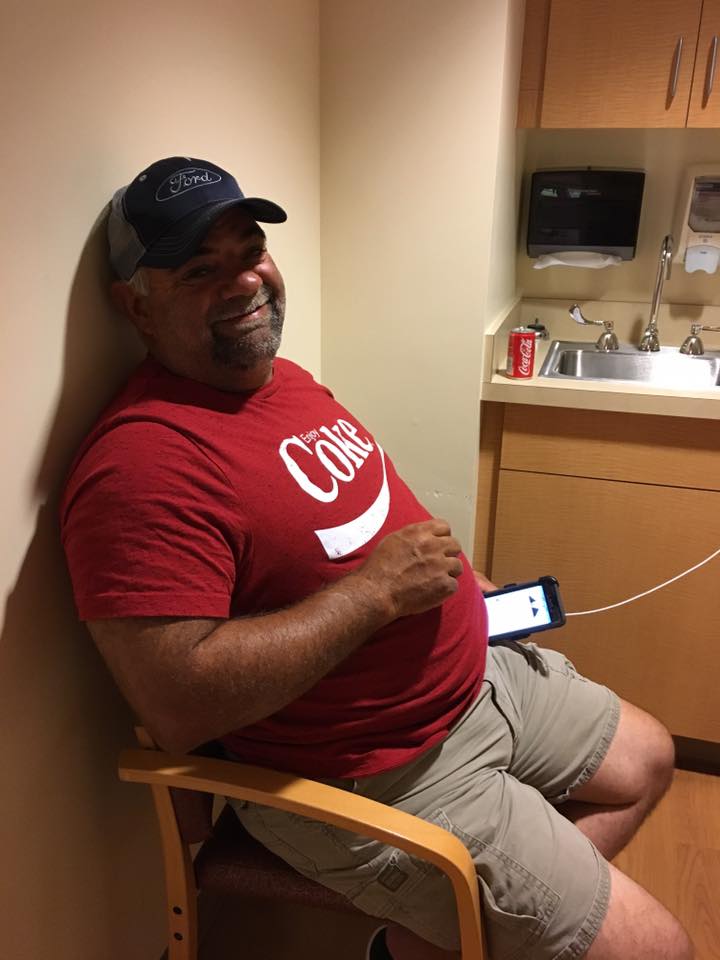
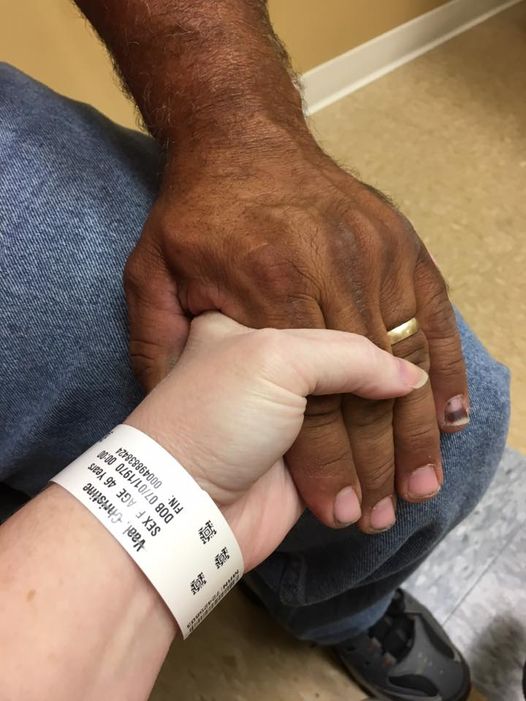
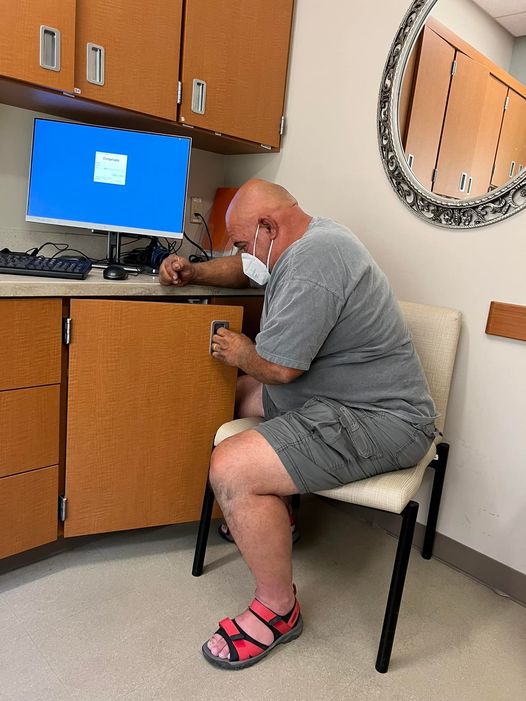
Vince: I have to sit in the doctor’s chair.
Christy: It’s become fun. We kind of make it a joke, and we make it funny. It was a totally different experience for him because he’s just never been a person to go to the doctor or anything like that.
Vince: When she first started going through treatment, I would go in there. It was taking 6 to 8 hours. The nurses are like, “We can call you when it’s done.” I said, “What if something happens in between to her? What if something happens to her, and I’m not here?”
I said, “Hell, I took off work. They’re paying me. I can sit in here and grunt through it with her.” I sat through every treatment just in case, because her body’s wacky. Stuff happens to her that doesn’t happen to the normal person.
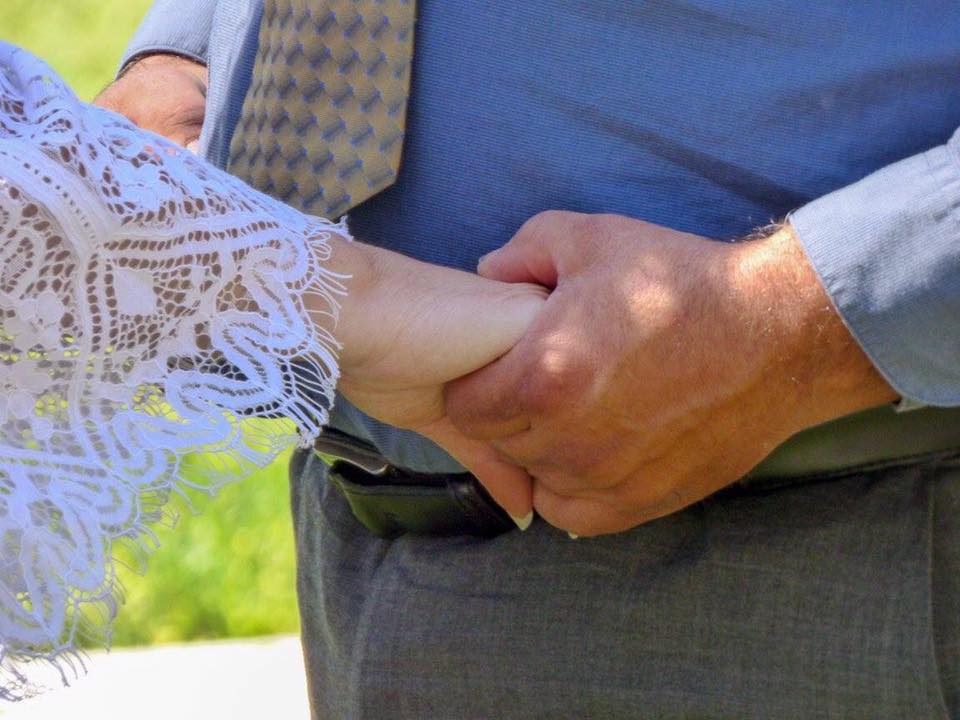
Being hopeful for the future of medical progress
Andrew, TPS: Are you hopeful? With CLL, there’s been a lot of progress. Are you hopeful for yourself?
Christy: Yes. I’m just shocked all the time about how fast progress is being made. It seems like every other month, there’s a new drug that they’re talking about that they’re doing trials on. Listening to my friends, the support group, and some of the new drugs and the clinical trials that they’re in, it’s just amazing. Yes, absolutely I have hope, and I don’t think it’s false hope.
Vince: The medicine is amazing. The stuff they do is just unreal.
Andrew, TPS: Esther and I, as we hope to have many years together, wish you many, many years together.
Thank you for joining us from Jasper, Indiana. Christi and Vince Vaal, we wish you great time together. Thank you for being our friends here in honor of our Cancer Friends program. We really enjoy it. Andrew and Esther, Christy and Vince, all together with love.
Inspired by Christy's story?
Share your story, too!
